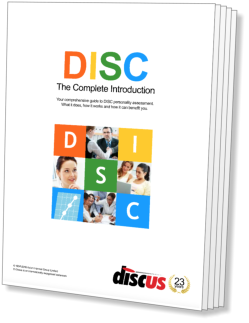Negotiation Strategies
The Style Card's method of looking at behavioral types is, as we have already mentioned, somewhat limited in comparison to a full DISC interpretation. Its very simplicity, however, conveys certain advantages. One of these is that it can be applied remotely (that is, without any direct input on the part of the person under consideration). Indeed, with practice, most people find that they are able to categorize people directly as Drivers, Communicators, Planners or Analysts.
Knowledge of an individual's basic style can be extremely useful, especially during negotiation. We have already looked at the motivating factors for different individual styles. In this section, we summarize the optimum negotiation strategies for the four main styles.
|
|
Driver: Drivers relish control and authority. Whatever their situation, they will seek to dominate the proceedings, and this applies as much to negotiation as any other set of circumstances. To motivate them towards accepting an idea, therefore, it is important not to challenge this desire to dominate the negotiation, but to appear receptive and mildly submissive. By offering suggestions and hints, rather than attempting to directly control the Driver's decision-making process, they can be made more receptive to a proposal. This approach is often referred to as the 'Power' strategy. |
|
|
Communicator: Perhaps the most important thing to a Communicator is the building of positive relationships with other people. In a negotiation, therefore, it is important to build a social relationship with the Communicator if they are to be motivated towards accepting new ideas or proposals. A purely confrontational approach will, conversely, have a negative effect. Communicators are also interested in the experiences of other people, and discussions of the ways that a proposal has benefitted others in the past will also be of benefit. This technique is often called the 'People' strategy. |
|
|
Planner: Planners are perhaps the most compromising and malleable of the four main types. Their desire to avoid conflict or confrontation, and their wish to maintain positive and supportive relationships, means that they are willing to accept assurances and guarantees that might arouse skepticism in other styles. Planners will require time to reach decisions, and should not be forced to a conclusion before they are ready. This is the 'Promise' strategy. |
|
|
Analyst: An Analyst type will accept one thing and one thing alone - absolute proof that a proposal is sound. They will look into details and technicalities, and wish to explore issues of implementation and maintenance that other styles would quite possibly ignore altogether. It is vitally important that all of their questions are answered in full for them to feel motivated by a new idea. This is the so-called 'Proof' strategy. |
If you have read through the preceding sections, you will understand the idea of the four intermediate types (Assertive, Open, Receptive and Controlled) combining the different aspects of their adjoining main styles. For example, an Open behavioral style, linked to both the Communicator and Planner styles, responds best to a combination of the People and Promise strategies. For convenience, the four intermediate styles and their appropriate combinations of strategies are listed below.
|
|
Assertive: Power / People |
|
|
Open: People / Promise |
|
|
Receptive: Promise / Proof |
|
|
Controlled: Proof / Power |

